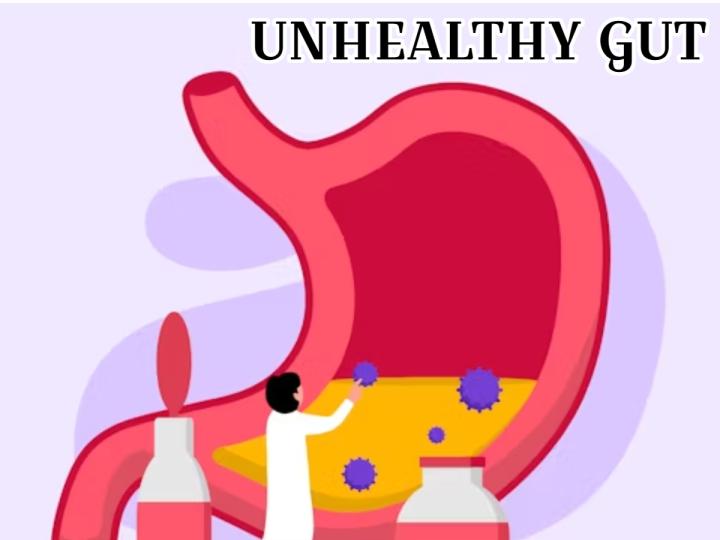
Your gut does more than just digest food — it’s the control center for your overall health. From boosting immunity to balancing mood and even maintaining skin glow, everything begins in the gut.
But modern eating habits, stress, and antibiotics can disturb this delicate system. The good news? You can rebuild your gut health naturally by making small, consistent changes in your diet and lifestyle.
In this post, let’s understand what gut health really means, how to spot when something’s wrong, and the proven ways to restore your digestive balance — all backed by science and easy to follow.
Your gut, also called the digestive tract, is home to trillions of microorganisms — mainly bacteria — known as the gut microbiome. These microbes play a vital role in:
Breaking down food and absorbing nutrients
Strengthening your immune system
Regulating hormones and mood (via the gut-brain connection)
Protecting against harmful bacteria and inflammation
When the balance of good and bad bacteria is disturbed, it can lead to digestive issues, low immunity, skin problems, and even mental fatigue.
If you experience any of these regularly, your gut may need attention:
Bloating or Gas after meals
Constipation or Diarrhea
Frequent Fatigue or low energy
Unexplained Skin Breakouts
Sugar Cravings
Poor Sleep or Mood Swings
Food Sensitivities
These symptoms are often overlooked but can be the first clues that your gut microbiome is imbalanced.
Vegetables, fruits, oats, and lentils provide prebiotics — the “food” your good gut bacteria need to thrive.
Include yogurt, kefir, sauerkraut, kimchi, and kombucha. These contain live bacteria that help restore gut balance.
Fermented items like miso or buttermilk boost digestion and increase beneficial microbes.
Packed with antioxidants, green tea helps reduce gut inflammation and supports healthy bacteria.
Bananas (especially slightly unripe ones), boiled potatoes, and whole grains help feed good bacteria.
Processed foods
Sugary drinks
Artificial sweeteners
Overuse of antibiotics
Eat Slowly and Mindfully – Proper chewing improves digestion.
Stay Hydrated – Water helps move food through your intestines smoothly.
Sleep Well – Poor sleep can disturb gut bacteria balance.
Manage Stress – Meditation, yoga, and deep breathing support gut-brain harmony.
Stay Active – Regular walking or light exercise stimulates digestion naturally.
Your gut and brain are connected through the vagus nerve, often called the gut-brain axis.
This means when your digestion suffers, it can also affect your emotions, focus, and even anxiety levels.
A healthy gut helps produce serotonin, the “feel-good hormone,” which stabilizes mood and promotes restful sleep.
Warm Water with Lemon – Aids digestion and detoxification.
Aloe Vera Juice – Soothes inflammation in the intestines.
Ginger Tea – Reduces bloating and nausea.
Coconut Water – Keeps your gut hydrated and supports healthy digestion.
❌ Myth 1: You need expensive probiotics to fix your gut.
✅ Truth: Natural probiotic foods are often enough to maintain a balanced gut.
❌ Myth 2: Gut problems only affect digestion.
✅ Truth: They also impact immunity, mental health, and metabolism.
❌ Myth 3: Drinking detox juices alone heals the gut.
✅ Truth: True healing requires consistent habits — balanced meals, rest, and hydration.
If you experience severe symptoms such as:
Persistent stomach pain
Blood in stool
Sudden weight loss
Long-term diarrhea or constipation
Consult a gastroenterologist. Gut health issues can sometimes signal deeper conditions like IBS, food intolerance, or ulcers.
Q1: How can I improve my gut health naturally?
A: Eat fiber-rich foods, include probiotics, drink plenty of water, and manage stress.
Q2: How long does it take to heal gut health?
A: Depending on diet and habits, it can take 2–4 weeks of consistent changes to notice improvements.
Q3: What are the worst foods for gut health?
A: Processed snacks, refined sugars, and excessive alcohol can harm good bacteria.
Q4: Is yogurt enough to improve gut health?
A: Yogurt helps, but combining it with other probiotic and prebiotic foods works best.
Q5: Can gut health affect mental health?
A: Yes. The gut produces neurotransmitters like serotonin that impact mood and anxiety levels.
Your gut is truly your body’s second brain — it influences everything from your mood to your metabolism.
By choosing natural, fiber-rich foods, managing stress, and avoiding ultra-processed diets, you can build a healthier gut and a stronger you.
Start small: add a bowl of yogurt or a handful of fruits daily, stay hydrated, and get enough sleep.
A healthy gut doesn’t need complex solutions — just mindful living.
1) The Science-Backed Benefits of Drinking Warm Water Daily
2) Health & Wellness Trends 2025: How India is Shaping Global Wellbeing




